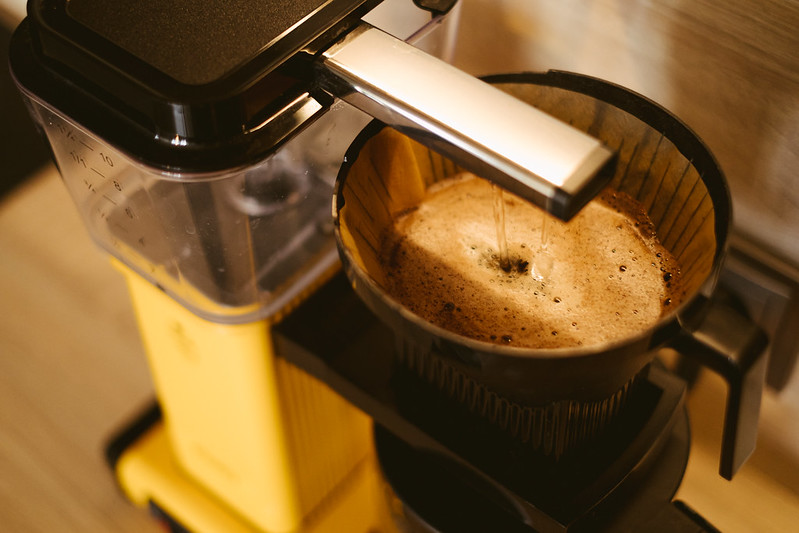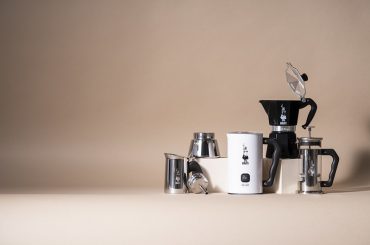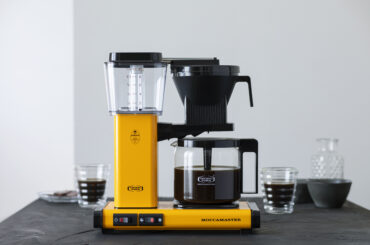The stimulating effects of coffee are quite obvious. A mug of good, black brew is appreciated by anyone who needs a boost of energy to face a challenging task at work or, on the contrary, a gruelling and tedious paperwork. Good coffee is a staple in the office! Have you ever wondered what beans to pick for different coffee machines so that every employee finds what they like? Here’s our advice.
We all have our preferences and habits when it comes to taste. Choosing coffee is no exception. Some people focus on the strength of the brew, others prefer a well-balanced creamy beverage. As far as it’s easy to decide what coffee you (and possibly your partner) want to drink at home, it’s far more difficult to find a consensus among, say, 50 workers about the coffee available in your office. Whatever the needs, we recommend paying attention to the type and quality of the product because we believe that good coffee will always speak for itself!
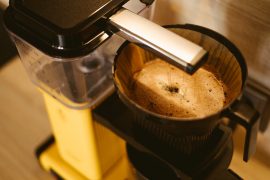
What to Focus on While Choosing Coffee for Your Office?
Knowing coffee basics, you can always choose right beans for you and your employees. What’s important is: variety, origin, composition of beans, freshness and roasting profile. If you understand the long way coffee makes from the tree to your cup, you can quickly verify which coffee will be best for your office. Once you know the basics, finding out the most suitable coffee will never be easier. When I hold a packet of coffee beans, here are the things that I first pay attention to:
- Freshness. This may be news: freshness and ‘best before’ date don’t necessarily align. Usually the date on the coffee packet is one year from the date of the roast. However, coffee beans are said to taste best from 2 weeks to about 3 months from the date of the roast.
- Beans origin. Contrary to popular belief, it’s important to know where our coffee comes from. There are differences even within the same continent. For example, the beans from Africa will generally be more acidic than the beans from South America
- Botanical variety. As all plants, the coffee shrub has several varieties with different characteristics. They are generally divided into arabica and robusta. Arabica contains less caffeine. It is also stronger in taste and aroma. It can taste like caramel or vanilla, with flowery or honey notes. Robusta is less popular because it is more scarce (even though it’s easier and cheaper to cultivate). It contains about three times more caffeine than arabica. Its texture is heavy and creamy, its taste reminds of tobacco, dark chocolate, nuts and dried fruits.
- Roasting. The key to the final aroma and taste of coffee is roasting. Light roast is usually recommended for pour-over brewing, like in Moccamaster, and dark roast is perfect for espresso.

Why Are the Coffee Beans a Good Choice for Your Office?
First of all, it’s easier! Most offices provide automatic espresso machines because they are simple and convenient to use. They usually have built-in grinders and bean hoppers. All you need to do is pour coffee beans in the machine and problem solved. Another reason is freshness. Unfortunately, ground beans lose their properties quickly. Ground coffee starts to become stale already 20 minutes after grinding. If you brew such coffee after e.g. 1 hour, it may not have that fantastic aroma which it would get from the same beans straight after grinding, so if it’s possible, just invest in coffee beans. After all, good coffee means satisfied employee, and satisfied employees mean profits for the company!
What Beans Are Best for an Office Coffee Machine?
To choose the most suitable coffee for espresso machines, it’s important to understand type of equipment at your hands and the taste of its users. Generally, if your employees prefer more intense, creamy coffee, make sure to choose a blend with robusta. Those blends are often offered by Italian producers. We recommend Arcaffee and Le Piantagioni del Caffe.
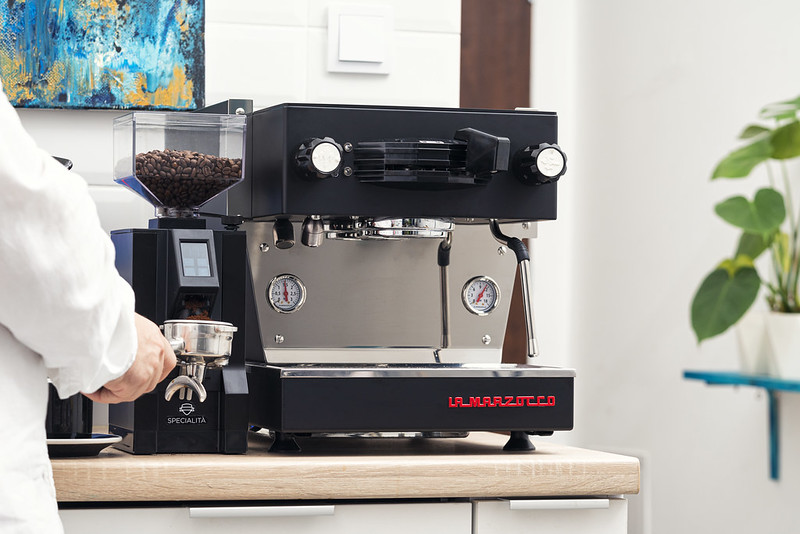
If, on the other hand, you prefer sweeter taste, you should choose a blend with more arabica, or a single origin arabica. An example can be the worldwide famous Cignobianco Espresso Blend by master Gardielli. An interesting offer from Poland, yet far more crisp and fruity, is Pink Espresso Blend WRF by Hayb. A large fraction of employees with access to an espresso machine will definitely choose milk-based coffees. In this case you should make sure that the beans you use work well with milk. Such beans include: Bialetti Experto Grani Classico and Illy Classico Classic Roast.
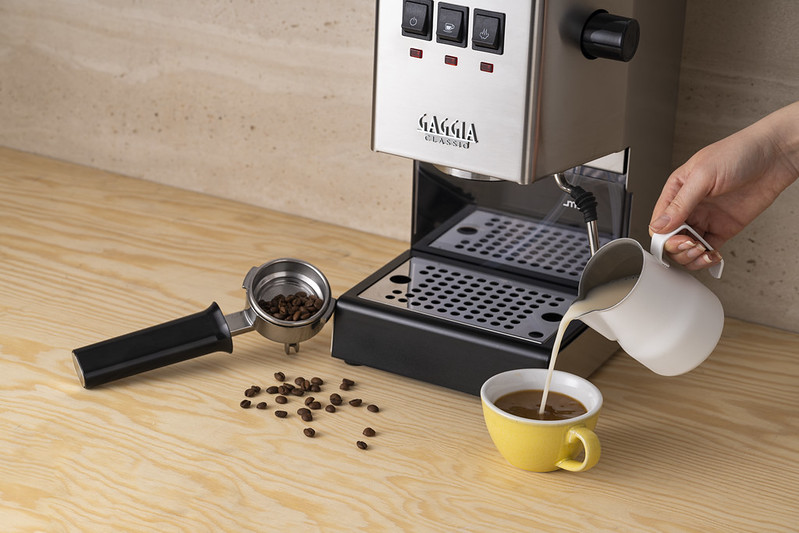
Tight budget is the most important… in every company. We’re not fans of cutting costs in relation to coffee, however, we do know how important money is in running the business. Still, we keep discouraging you from buying cheap, poor-quality coffee from supermarket. More budget, yet still tasty, solutions are: Kimbo Espresso Bar Crema Suprema and Lavazza Crema e Aroma.
All the above coffees are recommended for espresso machines, both automatic and semi-automatic. However, if you’ve bought a drip coffee machine to your office, the key is to make sure that the coffee beans you use with it are light roast. A good example of light roast is: Się Przelewa Klasyk Filter by Hayb and Brazil Fortaleza by Johan & Nyström.
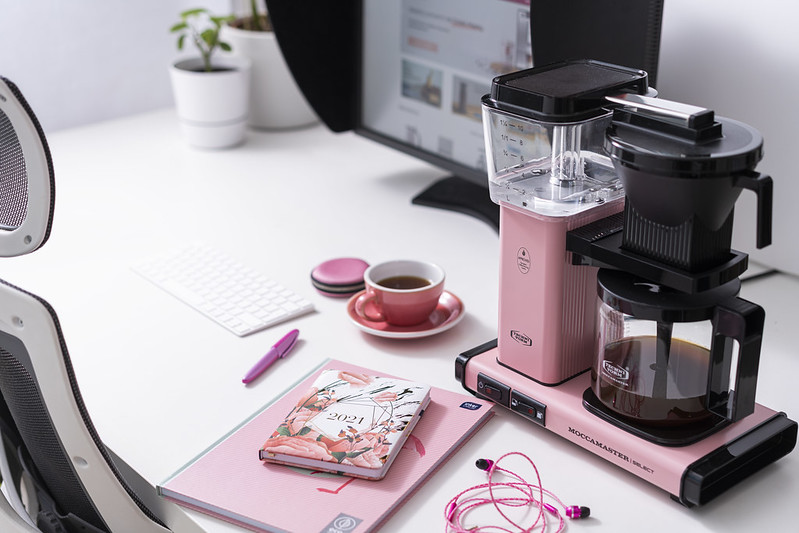
Regardless of the roast, the beans should be hard, uniform in size, with smooth surface and no oil stains, of the same colour. I strongly discourage buying aromatized beans: for your health and for the health of your coffee grinder.
My personal recommendations come from experience, price to quality ratio, original packaging, flavour and aroma of the products and online customer reviews. I hope that once you’ve read this short article you’ll be able to find the most suitable beans for you and your employees. Good luck!

